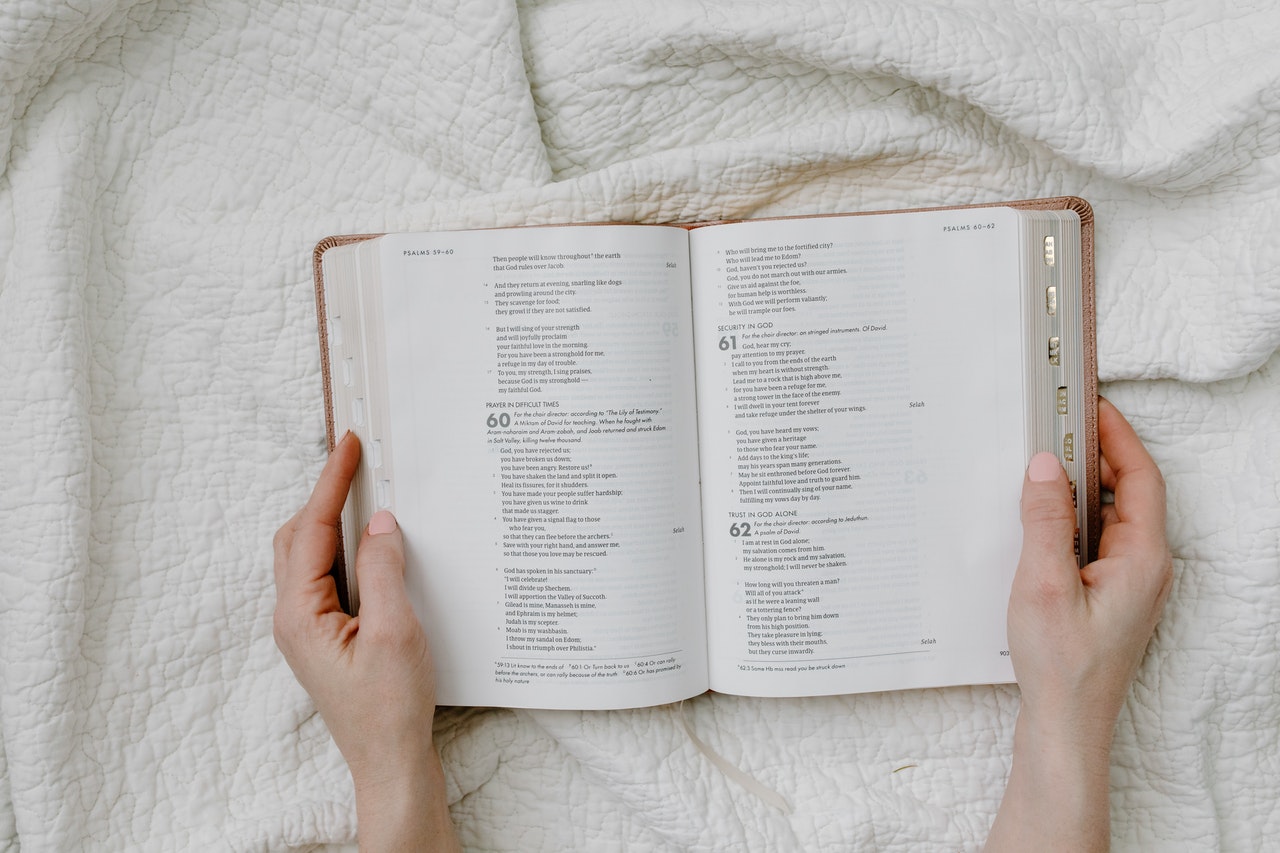Locs, also known as dreadlocks, have been a topic of debate within the Christian community. Some believe that locs are a natural hairstyle and should be accepted, while others argue that they go against biblical teachings. So, can Christians have locs?
Table of Contents
Religious Perspectives on Locs for Christians
Locs, also known as dreadlocks, have been a popular hairstyle for centuries, with roots in various cultures and religions around the world. However, when it comes to Christianity, there has been some debate about whether or not Christians can have locs. Some believe that locs are a symbol of rebellion or paganism, while others argue that they are simply a hairstyle and should not be associated with any particular religious beliefs.
One of the main concerns for Christians when it comes to locs is the idea of vanity and pride. Some believe that having locs is a form of self-expression that goes against the teachings of humility and modesty found in the Bible. However, it is important to remember that the Bible does not specifically mention locs as being sinful or inappropriate. In fact, many biblical figures, such as Samson and John the Baptist, are believed to have had locs.
Another argument against locs for Christians is the idea that they are associated with pagan rituals and beliefs. Some believe that locs are a symbol of rebellion against God and should be avoided by those who follow the teachings of Christianity. However, it is important to remember that the origins of locs are diverse and can be found in many different cultures and religions, not just pagan ones.
On the other hand, there are many Christians who believe that locs are simply a hairstyle and should not be judged based on religious beliefs. They argue that as long as a person’s heart is in the right place and they are living a life that is pleasing to God, their hairstyle should not matter. In fact, some Christians believe that locs can be a symbol of dedication and commitment to their faith, much like wearing a cross or other religious symbol.
Ultimately, the decision to have locs as a Christian is a personal one that should be made prayerfully and with consideration for one’s own beliefs and convictions. It is important to remember that God looks at the heart, not the outward appearance, and that our relationship with Him is not based on our hairstyle or any other external factors.
In conclusion, the question of whether or not Christians can have locs is a complex one that does not have a clear-cut answer. While some may believe that locs are inappropriate for Christians due to concerns about vanity or pagan associations, others argue that locs are simply a hairstyle and should not be judged based on religious beliefs. Ultimately, the decision to have locs as a Christian should be made prayerfully and with consideration for one’s own beliefs and convictions. As long as a person’s heart is in the right place and they are living a life that is pleasing to God, their hairstyle should not matter.
Biblical References to Hair and Locs
Have you ever wondered if Christians can have locs? It’s a question that has sparked debate among believers for years. Some argue that locs are a natural hairstyle that should be embraced, while others believe that they go against biblical teachings. So, what does the Bible say about locs?
When it comes to hair, the Bible does have a few things to say. In 1 Corinthians 11:14-15, it states, “Does not the very nature of things teach you that if a man has long hair, it is a disgrace to him, but that if a woman has long hair, it is her glory?” This passage has been interpreted by some to mean that men should not have long hair, which could be seen as a strike against locs. However, it’s important to note that the Bible does not specifically mention locs as a hairstyle.
In fact, there are several instances in the Bible where locs are mentioned in a positive light. In the book of Numbers, Samson is described as having seven locks of hair that were the source of his strength. This suggests that locs can be a symbol of power and strength. Additionally, in the book of Ezekiel, locs are used as a metaphor for the people of Israel, showing that they can be a sign of identity and connection to one’s heritage.
It’s also worth noting that many cultures around the world have a long history of wearing locs as a symbol of spirituality and connection to the divine. In Rastafarianism, for example, locs are seen as a way to honor God and show dedication to a higher power. This suggests that locs can be a deeply spiritual and meaningful hairstyle for many people.
Ultimately, the decision to have locs as a Christian is a personal one. While some may see locs as going against biblical teachings on hair, others may view them as a natural and beautiful expression of their identity. It’s important to remember that God looks at the heart, not outward appearances. As 1 Samuel 16:7 states, “The Lord does not look at the things people look at. People look at the outward appearance, but the Lord looks at the heart.”
In conclusion, the question of whether Christians can have locs is a complex one that does not have a clear-cut answer in the Bible. While some may argue that locs go against biblical teachings on hair, others may see them as a meaningful and spiritual expression of their identity. Ultimately, it’s up to each individual to prayerfully consider their own beliefs and convictions on the matter. As long as one’s heart is in the right place and their intentions are pure, there is no reason why a Christian cannot have locs.
Cultural Significance of Locs in Christianity

Locs, short for dreadlocks, have been a hairstyle with deep cultural significance for centuries. Originating in ancient Egypt, locs have been worn by various cultures and religions around the world. In recent years, locs have become a popular hairstyle choice for many people, including Christians. However, there has been some debate within the Christian community about whether or not it is appropriate for Christians to have locs.
Some Christians believe that locs are a symbol of rebellion and nonconformity, and therefore should be avoided. They argue that Christians should strive to present themselves in a way that is pleasing to God and that having locs goes against this principle. On the other hand, there are Christians who believe that locs are simply a hairstyle and do not have any spiritual significance. They argue that as long as a Christian is living a life that is pleasing to God, it should not matter what hairstyle they choose to wear.
One of the main concerns that some Christians have about locs is the association with Rastafarianism. Rastafarians, who are followers of the Rastafarian religion, often wear locs as a symbol of their faith. Some Christians believe that by wearing locs, they are aligning themselves with a religion that is not in line with Christian beliefs. However, it is important to note that not all people who wear locs are Rastafarians, and many people choose to wear locs simply as a personal style choice.
Another concern that some Christians have about locs is the idea that they are unclean or unkempt. This belief stems from a misunderstanding of what locs actually are. Locs are formed by allowing the hair to naturally mat and tangle over time, and with proper care and maintenance, locs can be kept clean and healthy. In fact, many people with locs take great pride in the care and maintenance of their hair, and view locs as a symbol of strength and resilience.
Ultimately, the decision to wear locs as a Christian is a personal one. It is important for each individual to prayerfully consider their own beliefs and convictions when it comes to their appearance. While some Christians may feel called to avoid locs, others may feel comfortable wearing them. It is important for Christians to remember that outward appearance is not what defines a person’s relationship with God, but rather the condition of their heart.
In conclusion, locs are a hairstyle with deep cultural significance that has been worn by various cultures and religions around the world. While there may be some debate within the Christian community about whether or not it is appropriate for Christians to have locs, ultimately the decision is a personal one. As long as a Christian is living a life that is pleasing to God and is following their own convictions, there should be no issue with wearing locs. It is important for Christians to remember that outward appearance is not what defines a person’s relationship with God, but rather the condition of their heart.
Personal Testimonies of Christians with Locs
When it comes to hairstyles, there are a wide variety of options to choose from. From short and spiky to long and flowing, the possibilities are endless. One hairstyle that has gained popularity in recent years is locs, also known as dreadlocks. While locs have been traditionally associated with Rastafarian culture, many Christians are now embracing this unique hairstyle as well.
For some Christians, wearing locs is a way to express their individuality and creativity. It’s a way to stand out from the crowd and show the world that they are not afraid to be different. Locs can be a powerful symbol of strength and resilience, as they require patience and dedication to grow and maintain. For many Christians, wearing locs is a way to connect with their spiritual beliefs and show their commitment to their faith.
One Christian who has embraced locs is Sarah, a 25-year-old college student. Sarah first started growing her locs three years ago, and she hasn’t looked back since. For her, wearing locs is a way to honor her African heritage and celebrate the beauty of natural hair. Sarah believes that God created each person uniquely, and that includes their hair. She sees her locs as a gift from God, a way to express herself and show the world who she truly is.
Another Christian who has embraced locs is Michael, a 30-year-old teacher. Michael first started growing his locs five years ago, after feeling inspired by a sermon he heard at church. The pastor spoke about embracing one’s natural beauty and not conforming to societal standards of beauty. Michael took this message to heart and decided to grow his locs as a way to show his commitment to his faith and his belief in the power of self-expression.
For both Sarah and Michael, wearing locs has been a journey of self-discovery and self-acceptance. They have faced criticism and judgment from others who don’t understand their choice of hairstyle, but they have remained steadfast in their beliefs. They believe that God created them just the way they are, and that includes their locs. They see their locs as a way to honor God and show their gratitude for the unique gifts He has given them.
In conclusion, Christians can absolutely have locs. For many believers, wearing locs is a way to express their faith and connect with their spiritual beliefs. It’s a way to honor their heritage and celebrate the beauty of natural hair. While some may question their choice of hairstyle, Christians like Sarah and Michael remain confident in their decision to wear locs. They see their locs as a powerful symbol of strength, resilience, and self-expression. And most importantly, they see their locs as a gift from God, a way to show the world who they truly are.
Addressing Stereotypes and Misconceptions about Christians with Locs
When it comes to hairstyles, there are often stereotypes and misconceptions that can be attached to certain looks. One such hairstyle that has faced its fair share of judgment is locs. Locs, also known as dreadlocks, are a hairstyle where the hair is twisted and matted into rope-like strands. While locs have been worn by people of various cultures for centuries, there is still a stigma attached to them in some circles.
One group that has faced criticism for wearing locs is Christians. Some people believe that Christians should not have locs because they are seen as unkempt or unprofessional. However, this stereotype is not only unfounded but also goes against the teachings of Christianity. In the Bible, there is no mention of specific hairstyles that are forbidden for Christians to wear. In fact, the Bible emphasizes the importance of not judging others based on their outward appearance.
It is important to remember that locs are simply a hairstyle and do not define a person’s character or beliefs. Just because someone chooses to wear locs does not mean they are any less of a Christian. In fact, many Christians with locs use their hairstyle as a way to express their faith and individuality. Locs can be a powerful symbol of strength, resilience, and commitment to one’s beliefs.
Furthermore, wearing locs can be a way for Christians to connect with their African roots. Locs have a long history in African culture and have been worn by various tribes for centuries. By wearing locs, Christians can show solidarity with their African brothers and sisters and celebrate the diversity of God’s creation.
It is also important to recognize that locs are a low-maintenance hairstyle that can be practical for Christians who lead busy lives. Locs require minimal styling and can be easily maintained with regular washing and moisturizing. This can be especially beneficial for Christians who prioritize simplicity and humility in their appearance.
In conclusion, Christians can absolutely have locs without compromising their faith or values. Locs are just a hairstyle and should not be used as a basis for judgment or discrimination. Christians with locs should be celebrated for their individuality, creativity, and commitment to their beliefs. Let us embrace diversity and inclusivity within the Christian community and support each other in our journey of faith.
Conclusion
Yes, Christians can have locs.
For licensing reasons, we must provide the following notice: This content was created in part with the help of an AI.


